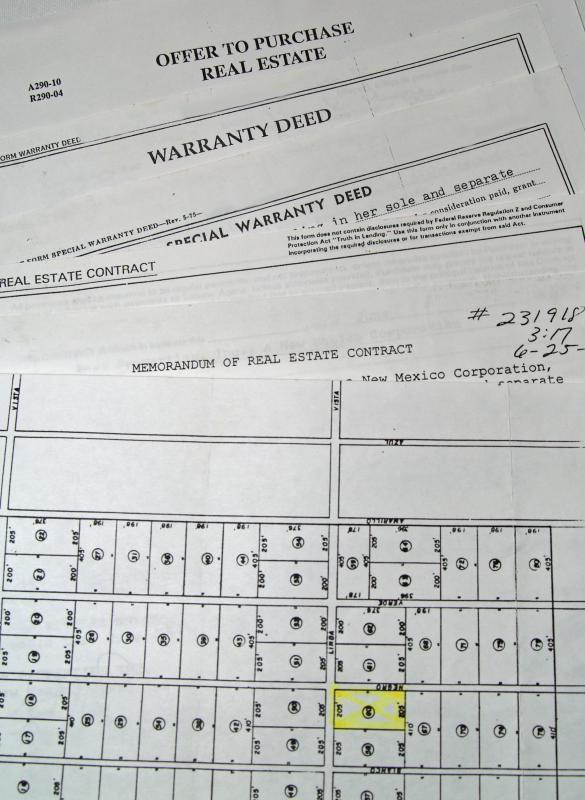At WiseGEEK, we're committed to delivering accurate, trustworthy information. Our expert-authored content is rigorously fact-checked and sourced from credible authorities. Discover how we uphold the highest standards in providing you with reliable knowledge.
What are Real Estate Disclosure Laws?
Real estate disclosure laws legally force the seller to disclose any serious defects to potential buyers of a property. These laws were created to protect the buyer from defects that they may not notice until they have already closed the deal on the property and have taken ownership. Yet, real estate disclosure laws may be difficult to enforce as what constitutes serious defects may be open to at least some interpretation. For this reason, these laws are under constant change and many states still don't have effective disclosure laws.
States without mandatory real estate disclosure laws usually have only a voluntary disclosure from seller to buyer, so be sure to exercise extra caution when buying property in one of these states. You can check with your real estate agent to find out the laws that affect your state. That said, federal laws are often still in effect where safety issues such as lead paint or radon gas is present on a property. Local laws having to do with real estate disclosure may also apply and it’s a good idea to discuss these issues with a lawyer and/or real estate expert in the know.

Real estate disclosure laws didn't start becoming common in the United States until the 1960s. Nevada has some of the strongest disclosure laws concerning real estate sales. Its Lemon Law holds that if the buyer at any time discovers a defect that the seller didn't list on the mandatory property disclosure form, the buyer is free to get out of buying the home. Any deposit the buyer paid is given back in full.

A mandatory written disclosure questionnaire from the seller to the buyer about the accurate condition of the home is mandatory in some states, although the laws that cover any violations vary widely. Some real estate disclosure laws include recovery of legal fees if the buyer has to sue the seller due to any discrepancies between the questionnaire and the actual condition of the property. Home inspection is a good preventative measure to buying defective real estate, yet the home inspector should be licensed and hired by the buyer. A seller may have signed papers stating that the property is free from serious defects, yet these papers could be from an unlicensed contractor rather than a licensed inspector.
AS FEATURED ON:
AS FEATURED ON:












Discussion Comments
Is a seller required to notify potential buyers of chronic environmental hazards? Specifically, of frequent heavy wood smoke pollution resulting from the neighborhood use of fireplaces and wood stoves?
This problem is not at all apparent during a few months of the year. Other months, many people will find it unbearable. It's the main reason I'm planning on selling. Could I be sued for non-disclosure?
This is important for people who rent, as well. I unfortunately ended up with a good size of my security bond taken away because none of the tenants, including me, took the time to fill out the questionnaire as to how the state of the house was in when we first arrived. Something to remember for those of you considering moving out of home for the first time.
Post your comments